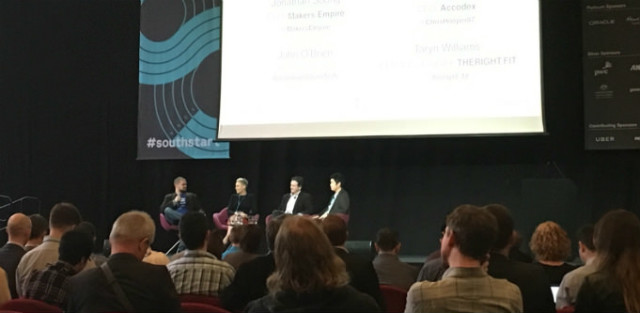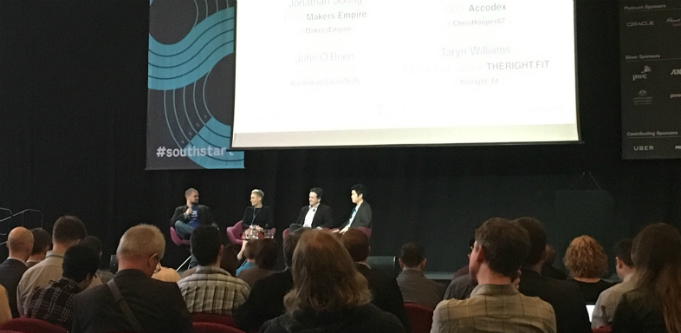Six steps to cause disruption in an industry – StartupSmart

Listening to your customers and solving the bigger problem are essential ingredients to being able to disrupt an industry, according to a panel of entrepreneurs who discussed the topic at the South Start conference in Adelaide last week.
Makers Empire chief executive Jon Soong, TheRight.Fit co-founder and chief executive Taryn Williams and Australian Clean Tech managing director John O’Brien were joined on the panel by Accodex co-founder Chris Hooper, who moderated the discussion.
Reflecting on their journeys and lessons learned to date, they revealed six steps to disrupt a sector successfully.
1. Solve the bigger problem
Before Williams launched TheRight.Fit, an online platform for brands wanting to find talent quickly, she spent four years building tech platforms with her other company Wink Models, which led her to realise there was a larger issue to solve.
“[I saw] there’s an opportunity to use some of this software with my domain properties to solve the bigger problem,” she says.
After creating products to manage payrolls and the like in the modelling industry, she saw that these could be used to empower the growing number of social media influencers to manage their careers while simultaneously connecting them to clients wanting online talent.
2. Expect discomfort
Creating transformative change in your industry may turn former colleagues into competitors and affect some of the relationships you’ve established in the traditional space, according to the panel.
“You’ve got to get comfortable with that discomfort,” Williams says.
In the early days of building TheRight.Fit, Williams said she often had to just turn a blind eye to some of the social media comments she received.
She says reminding herself that her venture is actually creating better opportunity and autonomy for talent saw her through.
“It’s allowing clients to book more jobs and more campaigns,” she says.
3. Hussle
Getting out there, planting seeds and using creative ways of getting your concept in front of potential customers is critical, says Joong.
When first trying to get their concept into schools, Joong says one of Makers Empire’s co-founders attended a principals tour designed for parents.
Though his co-founder didn’t have any kids of his own, he attended as a “prospective parent”, listening to other parents’ concerns.
During the tour there was a tech workspace and he took the opportunity to ask if they had 3D printing, adding that he’d want his future children to attend a high tech school.
“There was a fair bit of hussle,” says Joong.
4. Listen to customers the whole way
Even if you’re not ready to take a product to market, founders should be speaking to potential customers to understand what they need, says O’Brien.
This includes going to as many events as possible to network and meet people in your targeted market.
“Stop building stuff that people don’t want,” he says.
And when you build technology or products that the market wants, communicate the value and relevance to the user.
“You have to speak the language of your customer,” he says
5. Establish good credibility and reputation
Before Williams started TheRight.Fit, she had developed a strong presence in her industry.
As a vocal advocate and active lobbyist for industry change and better rights for talent, Williams says she was generally known and seen as credible in her space.
“Having that established presence and respect in [your] industry will make it much easier to disrupt [it],” says Chris Hooper.
6. Always keep improving
At the end of the day, whatever industry you’re disrupting, there’s one thing that won’t change.
“It’s not so much about disrupting as it is trying to work with people,” says Joong.
Even in Makers Empire’s own sector of bringing 3D printing to school, the broader problem is ensuring there are skilled people to drive tech innovation in the future in Australia.
Consider South Australia’s new $50 billion contract to build submarines, he says.
“We’ll be building them for the next 50 years [and] the people going to be designing them in 20 years are like five years old now,” he says.
“Unless we keep trying to make it better, it will stagnate.”
This piece was first published on SmartCompany.
Follow StartupSmart on Facebook, Twitter,LinkedIn and SoundCloud.

